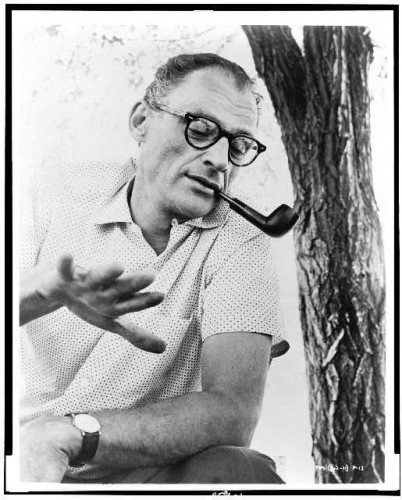On February 10, 2005, the award-winning American playwright Arthur Asher Miller died at his home in Roxbury, Connecticut, of congestive heart failure. The next night the lights of New York’s Broadway theaters were darkened in mourning and respect. Recognized for his contribution to the development of the American theater in the 20th century, Miller is best known for his play Death of a Salesman (1949), which received the Pulitzer Prize, Tony Award, and the New York Drama Critics’ Circle Award. Often controversial, his work explored moral issues including the conflict between personal and social responsibility.
Born in Manhattan in 1915, Miller grew up during the Great Depression and after attending college in Michigan began his career working for the Federal Theatre Project in New York City. His first works were radio plays and scripts. Miller supplemented his income at the time with odd jobs and continued to write. By 1940 he had finished six plays, only one of which was produced. Undaunted, Miller continued to write, and in 1947 All My Sons was produced on Broadway to critical acclaim, winning Miller his first Tony Award. The play’s success provided Miller with financial stability, and he built a studio in Roxbury, living in Connecticut for most of his adult life. It is in Roxbury that Miller wrote his landmark play Death of a Salesman, produced in 1949 when Miller was just 33 years old.
In addition to Death of a Salesman, Miller’s major works include All My Sons (1947), The Crucible (1953), A View from the Bridge (1955), After the Fall (1964), The Misfits (1961), and The Last Yankee (1992).









